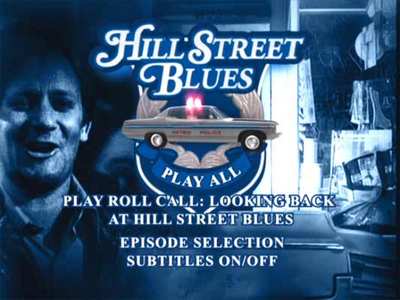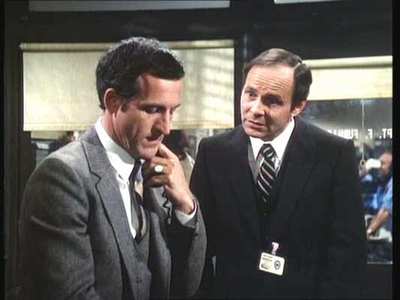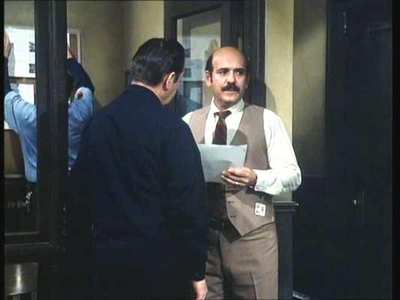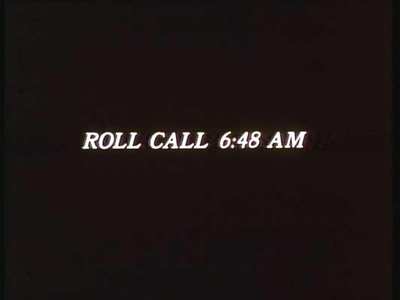Review of Hill Street Blues: Season 1
Introduction
1981 was a good year for some. New Romantics playing synthesisers with on finger revolutionised the music scene after the blandness of post-punk and although we didn`t quite know it just yet, the TV police series was undergoing a minor revolution. Stephen Bochco had an idea and created a chaotic pilot called Hill Street Station, which bombed (it was actually rated 88th out of 98 pilots that season). Still the guy in charge of NBC liked it, and so it was commissioned. Again, it didn`t really strike a chord with viewers initially; non-formulaic storylines that weren`t wrapped up within the hour were thought to be one reason. But then it all changed when the Blues won a record eight Emmy awards for its first season, and the rest is history.
Hill Street Blues consisted of a large ensemble cast; it was no star-driven series. Each character played a part, and there appeared to be no bias towards any particular actors. The series also placed many characters in two`s, contrasting with polar opposites, but all were the result of quality writing and first rate acting:
Captain Furillo (Daniel J Travanti) is the cool head within the perfect storm of Hill Street precinct and Joyce Davenport (Veronica Hamel), the brash and confident Public Defender
Officers Bobby Hill (Michael Warren) and Andy Renko (Charles Haid); smart, intelligent Black policeman and his brash Texan cowboy partner with a soft centre. This is a partnership that has stood the test of time, very popular and anyone who remembers Hill Street Blues will remember Hill and Renko; it`s always both, they were inseparable despite their differences.
Sergeant Henry Goldblume (Joe Spano) and Lieutenant Howard Hunter. Goldblume is the one person who seems to have both a real family life outside the job and also a compassionate human being who wants to negotiate. Hunter on the other hand is the gung-ho comic relief who wreaks havoc wherever he goes with his Emergency Action Team.
Detectives JD LaRue (Kiel Martin) and Neal Washington (Taurean Blacque); the former is a chancer and wannabe Ladies man, always on the look out for a quick scam and has a drinking problem that is getting worse. Washington is his long-suffering partner who is slowly losing patience with his increasingly unreliable partner.
Sergeant Phil Esterhaus (Michael Conrad) is the elder statesman who holds the station together by sheer charisma and oozes elegant prose whilst also having relationships with cheerleader Cindy and nymphomaniac cop widow Grace Gardner (Barbara Babcock).
Detective Mick Belker (Bruce Weitz); a growling angry man in pursuit of criminals on one hand, but a gentle Jewish boy who loves his mother on the other.
Faye Furillo (Barabara Bosson) brings up the rear as the ex-wife of Frank Sr and mother of Frank Jr. Always appears in the station in a state of panic over lack of child maintenance, inappropriate toys, being mugged or obscene phone calls.

Video
I couldn`t really detect any damage to the picture at all, which is pretty good for a TV series over 20 years old. There is detectable grain during the credits as each cast shot freezes, but that`s being picky.
Overall it just looks completely chaotic, lots of use of hand held cameras and nice shots that have been copied by everyone ever since. Outside shots and some interiors have been shot using natural light only, so in some places it`s even darker than you would normally expect.

Audio
Mono soundtrack, but that doesn`t matter - especially when Mike Post`s iconic theme tune kicks in. A gentle piano piece, it was deliberately designed to be a complete contrast to the chaos you would see on the screen. It is also one of the most well-known theme tunes of the 80`s and reached number 25 in the UK charts in 1982.
Subtitles are also present and correct.

Features
Quite nice menus featuring cast shots from the opening credits and a revolving police car, combined with the theme tune, radio chatter and police sirens.
Roll Call: Looking Back On Hill Street Blues - a meeting of most of the ensemble cast who then sit in a long row and have a chat about the show and their characters. It`s a bit glossy and slightly banal in places, but overall a good piece to include. The only thing better would have been a proper documentary. I`m not completely convinced that this was done for the DVD release though, as the copyright notices at the end of the piece includes 2001 as a date. One thing to note is that Veronica Hamel is much more reserved than her character whilst Barbara Bosson and Charles Haid prove their characters were really an extension of themselves.

Conclusion
Make no mistake; Hills Street Blues is a landmark piece of TV. It broke barriers during its debut season with its gritty take on urban life. It was chaotic, with crowded station house scenes, scripted dialogue that overlapped like real life and a reputation for violence. Looking back it`s actually not that violent at all, but when it is, it dwells on the ramifications of that violence rather than just simply stating "we got the good guys, let`s go home." It was also unafraid to have major characters shot, the series book ended with popular characters biting the bullet.
The key to success lay in the character development and the combination of drama and comedy. Most of the comedy was provided superbly by the pipe smoking right wing nutball Howard Hunter. His timing is simply superb and the episode where he finally gets his hand on the Nishitsu Urban Tank and then loses it is second to none, with Gatorbait not too far behind. Hunter is oblivious to the chaos he causes and the despairing looks from both Furillo and Goldblume. Subtle he ain`t, but Sikking is a comic genius.
It was a joy to watch this again, and even catch a glimpse of a pre-Horatio Caine David Caruso as the leader of Irish gang The Shamrocks, complete with big bowler hat and waistcoat with a shamrock sewn into it. Despite the unintentional hilarity of the depicted gangs here, they are an important part of this series. Furillo realises that the streets are in effect controlled by them and uses negotiation rather than strong-arm tactics (as wanted by Hunter) to get their cooperation. This issue comes to the fore early on when it is announced to Furillo`s chagrin that the President is coming for a visit.
Series One effectively introduces the characters and their turf and allows you follow their lives for better or worse over 17 episodes. The bad guys don`t always get caught, and sometimes the good guys get caught up in trouble. Oh, and you can`t say Hill without adding Renko; it`s just not on.
Quality series, don`t pass up the chance to watch it.
And hey, let`s be careful out there…
Your Opinions and Comments
Be the first to post a comment!